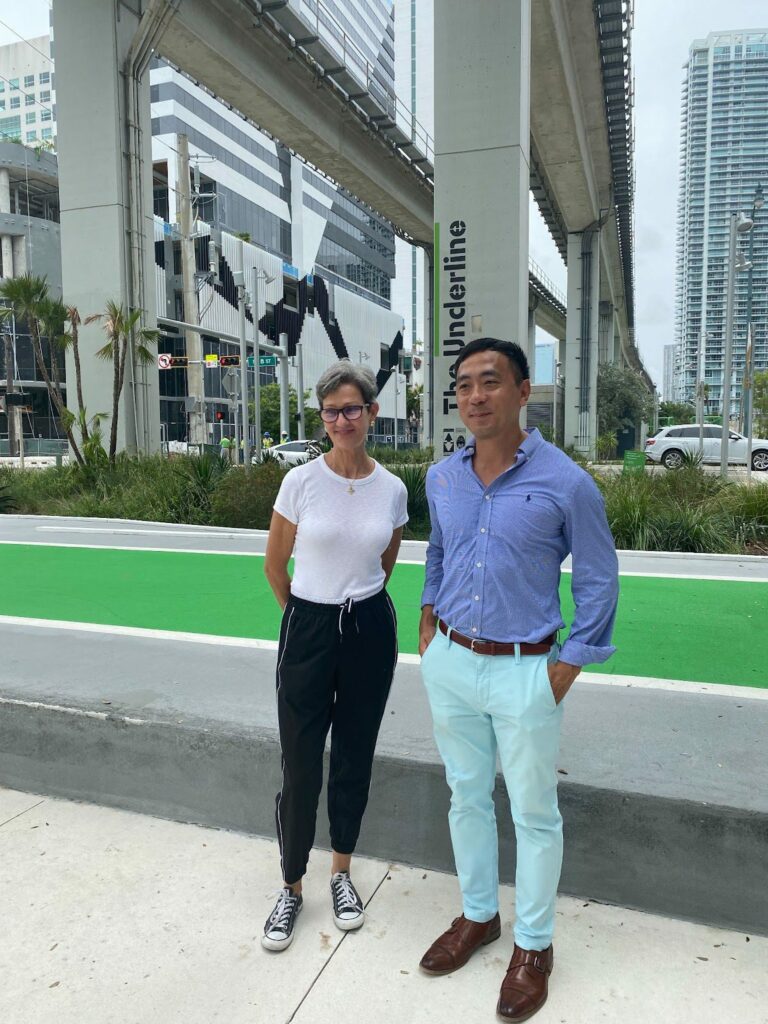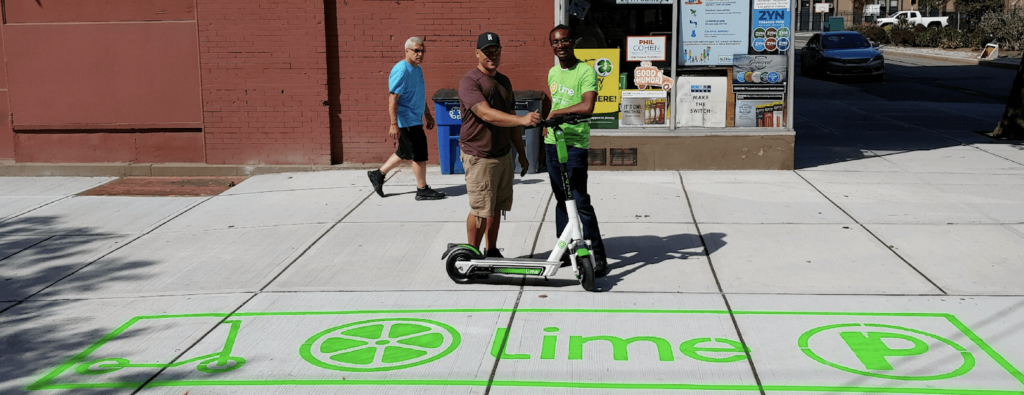The post-Thanksgiving ‘season’ is now officially upon us in South Florida. From the Treasure Coast through the Keys, lines at Publix will now stretch deep into the frozen food aisles and the time it takes to commute to work will multiply faster than a hot tech company’s valuation.
A handful of micromobility providers are taking a stab at alleviating congestion on our roads, working with (and sometimes against) local lawmakers to provide a plethora of transportation options for South Floridians. E-bikes? Hop on. E-mopeds? Vroom vrooom. E-scooters? You’re covered. Underground Tesla tunnels? Ok, that one might take some time.
Lime, one of the most established players in the micromobility market has targeted South Florida, and particularly Miami, as a regional headquarters for its growing business in the southeastern US.
In June, Lime announced the launch of its new office in Little Haiti, which is one of the city’s designated micromobility equity areas. The company’s CEO, Wayne Ting, said at the time: “At Lime we see Miami as a future model city for micromobility, a place that has such a successful scooter sharing program that cities around the world look to learn from what works here.”
Ting continued: “We’re heavily invested in the city of Miami and in the entire Southeast region of the country, where we are seeing demand for shared electric vehicles come roaring back to life as cities look to get moving again after the pandemic. We look forward to continuing to grow in partnership with Mayor Suarez and with the entire city of Miami and to expanding our footprint in the region.”

The uncertain future of e-scooters in Miami
Fast forward to this Fall, and the micro-mobility situation has deteriorated. The Miami City Commission voted to end its pilot program of allowing seven e-scooter providers, including Lime, to operate in some of the city’s most densely populated neighborhoods.
The program, launched in 2019, has brought millions of dollars of direct investment into Miami. Lime alone has already invested upwards of $4 million into the program to date, and the company told Refresh Miami that they plan to spend more than $6 million over the next three years if Miami’s e-scooter plans go through.
Scooter programs also have a positive indirect effect on the economy. One recent study from Emory University researchers revealed that each e-scooter brought $921 in incremental spending in the food and beverage industry alone over a six-month period. (Of course, remember to scoot responsibly!)
Recent reporting suggests that scooters might be back quicker than anticipated. The city commission has set up a special meeting to discuss the future of Miami’s micromobility scene.
“The scooter program has been a tremendous success for addressing micromobility limitations in the City of Miami and a more robust scooter program has the potential to solve one of the biggest challenges that face American cities: the last mile,” Mayor Suarez said in a statement.
Suarez underscored that the city “cannot sacrifice the safety of our residents for the sake of mobility” and that he has discussed the tradeoffs of e-scooters with City Commissioner Alex Diaz de la Portilla, a vocal critic of the pilot program.
Lime still hopes to grow in South Florida
Refresh Miami sat down with one of Lime’s head honchos in its South Florida office, Bruno Lopes. He’s the Senior Manager of Government Relations for the southeastern region of the US and a native Miamian. Safety, equity, and accessibility are top of mind for Lopes when it comes to developing mutually-beneficial micromobility initiatives.
“We work closely with alliances and advocacy groups and all the elected officials and regulatory departments from the city or the county to ensure that all those things are in place,” said Lopes. “Every market is different. We work with our partners and the government to make sure that the program that’s up and running in their city or their county is suitable to their needs and is maximizing what micromobility can do for a community.”

According to Lopes, the company currently has more than 30 employees working on its Miami program. Lime has previously expressed an interest in growing its Miami-based team to as many as 75 employees, depending on the regulatory status of e-scooters in the city.
Paving a path forward for micromobility
Lopes shares the frustration many Miamians felt when the commission decided to shut down the program at the same time that Mayor Suarez lauded micromobility providers in a conference in California.
“It’s pretty confusing to everyone: to companies, riders, and the general community,” Lopes explained. “It would be great if we could get everybody on the same page and moving in one direction to alleviate concerns and get a robust program that is beneficial for all parties.”
There are reasons to be positive, however. Lopes sees the reopening of the Brightline as a positive development for mobility in South Florida. He signalled that the two companies are exploring ways in which they might be able to work together.
“We think they would be a wonderful partner,” Lopes said of the high speed train line. Lime and Brightline working together, in Lopes’ estimation, could “really increase the equitable use of public transportation and mass transit across Florida” to an extent that hasn’t been seen in the state since the high-growth years in the 1950s and 60s.
Miami has a particularly special place in Lime’s story since Key Biscayne was one of the first three places the startup deployed its bikes, back in the summer of 2017. And Lopes hopes that South Florida will play an important role in the company’s future as well: “Mayor Suarez has done a fabulous job of drawing attention to Miami and bringing in some great players.”
Lopes asserted that “micromobility is very much aligned with what the Mayor is trying to do,” from alleviating traffic to catalyzing economic growth to tackling climate change. “We’re fully behind him in those efforts, and we hope to be a key cog of that. We will continue to tell the commission that the mobility industry could help with a lot of the problems they’re trying to address.”
Update (11/29): The Miami City Commission has reinstated the scooter program with additional safety regulations for operators and riders. Details are still emerging, but follow Refresh Miami on Twitter for the latest updates.

READ MORE MOBILITY STORIES ON REFRESH MIAMI:
- Miami’s menu of mobility modes multiplies. How can tech-enabled transport support our growing region?
- City of Fort Lauderdale to consider bid from Elon Musk’s Boring Co. to build tunnel to alleviate gridlock
- SunVessel offers elegant, electric solution to Miami’s mobility mess
- Swiftmile scoots into Miami, enabling sustainable transport options
- Ford, Argo AI to bring self-driving Lyfts to Miami by year’s end





